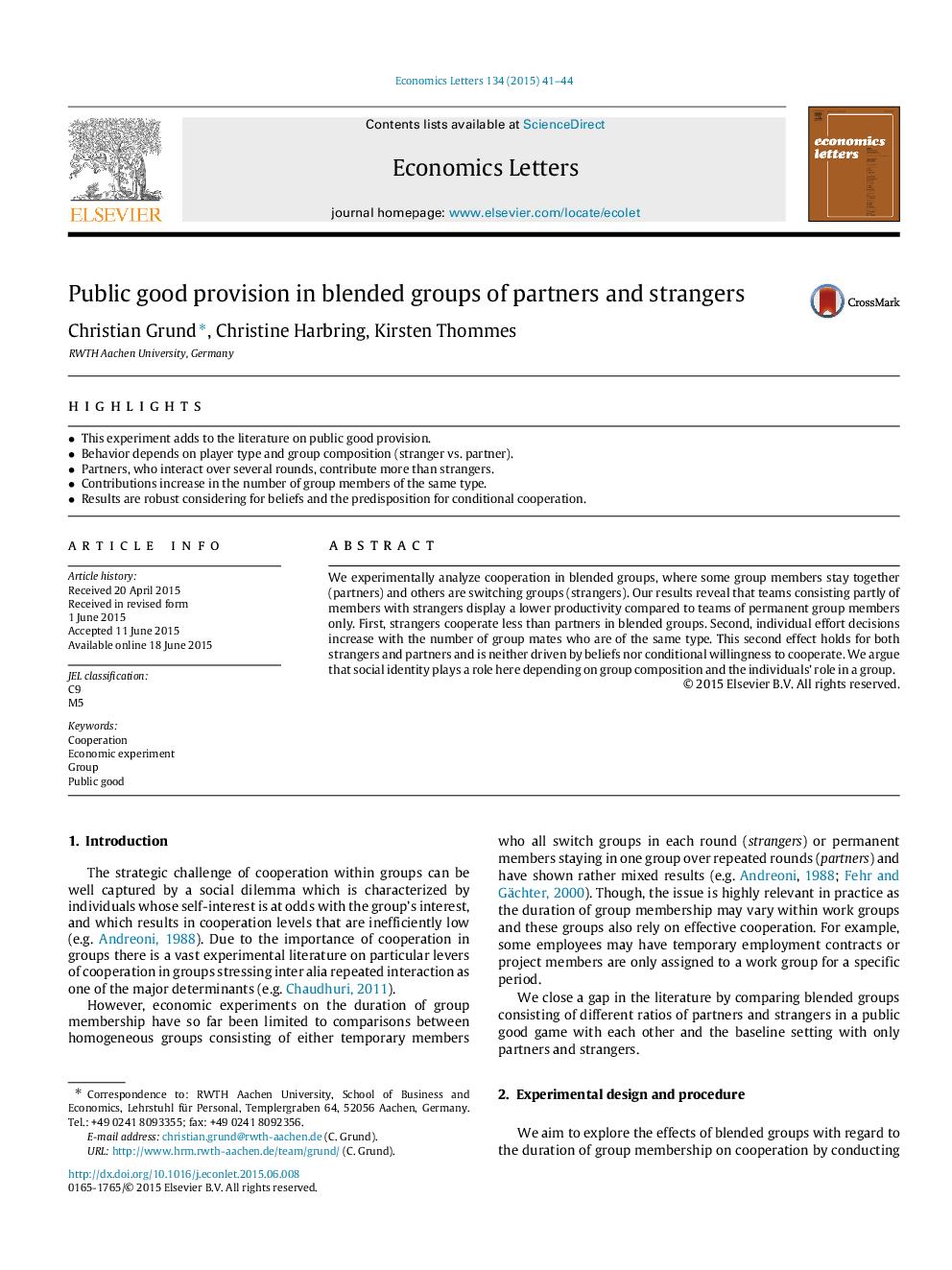| Article ID | Journal | Published Year | Pages | File Type |
|---|---|---|---|---|
| 5058419 | Economics Letters | 2015 | 4 Pages |
â¢This experiment adds to the literature on public good provision.â¢Behavior depends on player type and group composition (stranger vs. partner).â¢Partners, who interact over several rounds, contribute more than strangers.â¢Contributions increase in the number of group members of the same type.â¢Results are robust considering for beliefs and the predisposition for conditional cooperation.
We experimentally analyze cooperation in blended groups, where some group members stay together (partners) and others are switching groups (strangers). Our results reveal that teams consisting partly of members with strangers display a lower productivity compared to teams of permanent group members only. First, strangers cooperate less than partners in blended groups. Second, individual effort decisions increase with the number of group mates who are of the same type. This second effect holds for both strangers and partners and is neither driven by beliefs nor conditional willingness to cooperate. We argue that social identity plays a role here depending on group composition and the individuals' role in a group.
